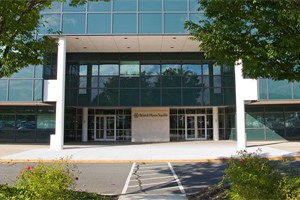 Bristol-Myers Squibb (BMS) posted a buoyant set of results in the first quarter, although the approval of generics to $8bn blockbuster Abilify in the US muted celebrations.
Bristol-Myers Squibb (BMS) posted a buoyant set of results in the first quarter, although the approval of generics to $8bn blockbuster Abilify in the US muted celebrations.
BMS’ revenues rose 6% to $4bn in the quarter – with royalties on antipsychotic Abilify (aripiprazole) adding $554m to the pot – but an FDA green light for generics from Alembic Pharmaceuticals, Hetero Labs, Teva and Torrent Pharmaceuticals means its contribution will likely slump over the remainder of the year.
BMS earns royalties on Abilify sales and the company reported revenues of $2bn in that market last year. It is a very profitable product for the company because it has virtually zero cost of goods.
The US pharma major will take heart however from a good performance from some of its newer drugs, particularly Pfizer-partnered anticoagulant Eliquis (apixaban) which brought in $335m in sales in the quarter, more than twice the same period of 2014.
“In the US, Eliquis is now the number one anticoagulant in new-to-brand prescriptions among cardiologists and the number one anticoagulant across all physicians for atrial fibrillation,” said BMS’ chief-executive in waiting Giovanni Caforio, who will shortly replace outgoing Lamberto Andreotti.
The acceleration in Eliquis sales comes despite increasingly fierce competition among the novel oral anticoagulant (NOAC) class, which includes Johnson & Johnson/Bayer’s Xarelto (rivaroxaban) and Boehringer Ingelheim’s Pradaxa (dabigatran) and recently saw a new rival – Daiichi Sankyo’s Savaysa (edoxaban), enter the US market.
BMS’ hepatitis C virus (HCV) franchise was another high spot – with sales of $264m led by a good performance for the combination of Daklinza (daclatasvir) and Sunvepra (asunaprevir) in Japan and despite fierce competition in Europe. The company re-filed Daklinza for approval in the US earlier this year after withdrawing its application last October but is hoping for approval in the third quarter.
Opdivo starts well
Given all the hyperbole around the new PD-1 inhibitor class of cancer immunotherapies, all eyes were on the performance of BMS’ melanoma and lung cancer therapy Opdivo (nivolumab) and the drug did not disappoint, adding $40m in its first full quarter on the market.
Sales were a little behind Merck & Co’s rival Keytruda (pembrolizumab) for melanoma – which made $83m in the quarter – but the latter benefitted from an earlier launch in the US even though Opdivo was approved first (in Japan). Opdivo has just been boosted by becoming the first of the pair to be recommended for approval in the EU.
Just as encouraging for BMS however was the resilience of melanoma blockbuster Yervoy (ipilimumab), which shrugged off the increased competition to post a 20% increase in sales to $325m.
In his last statement as CEO, Andreotti said: “We’ve started the year off with strong sales among new and inline brands, including Yervoy, Eliquis, our hepatitis C franchise and Opdivo, and brought important new medicines to patients with cancer and HIV.”




